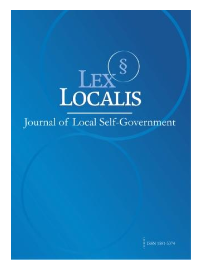IMPACT OF GOVERNMENT-LED SAVING INITIATIVE ON WOMEN EMPOWERMENT AND FINANCIAL INCLUSION IN RURAL POPULATION: EVIDENCE FROM AMAR BARI AMAR KHAMAR (ABAK) PROJECT IN BANGLADESH
DOI:
https://doi.org/10.52152/Keywords:
Government savings project; Amar Bari Amar Khamar (ABAK); financial inclusion; rural empowerment; women’s empowerment; Sustainable Development Goals (SDGs)Abstract
This study examines the effectiveness of the government-led savings initiative, which is known as “Amar Bari Amar Khamar (ABAK),” in Bangladesh. ABAK aims to alleviate poverty and promote women’s empowerment by fostering financial and social inclusion in marginalized rural communities through a micro-savings model. Adopting a mixed-methods approach, including household surveys (n = 380), focus group discussions, and key informant interviews in two districts, the study triangulates quantitative findings with qualitative insights to assess program results. The results reveal significant improvements in women’s financial autonomy, household income levels, and community participation. However, inconsistent training, digital literacy gaps, and poor local infrastructure hinder optimal impact. The findings demonstrate that savings-led models can contribute to the advancement of the SDGs, highlighting the need for enhanced institutional capacity, effective communication strategies, and gender-responsive mechanisms. This paper contributes to the development discourse by presenting ABAK as a state-driven, scalable alternative to traditional financial inclusion programs.
Downloads
Published
Issue
Section
License
Copyright (c) 2025 Lex localis - Journal of Local Self-Government

This work is licensed under a Creative Commons Attribution-NonCommercial-NoDerivatives 4.0 International License.








